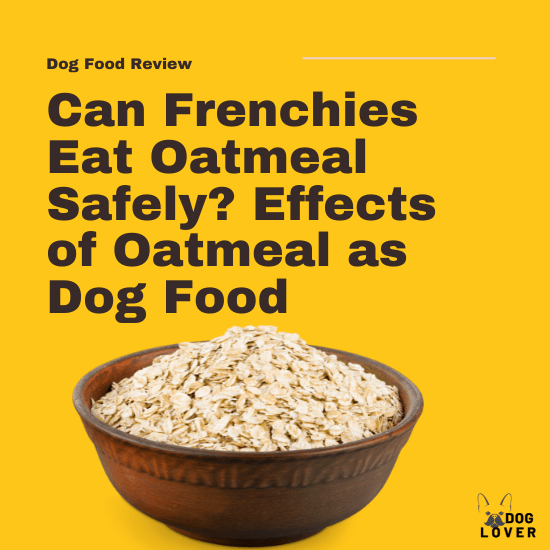Can Frenchies eat cheese?
Besides being tasty, cheese is a healthy treat for humans.
But, how safe is it for your Frenchie?
Read on to find out this, plus much more.
Is it safe for Frenchies to eat cheese?
Some cheese, when given as an occasional treat and in moderation, is harmless for dogs.
However, ensure that your dog is lactose tolerant.
In large amounts, cheese may cause health issues.
Benefits of Cheese to Dogs
Many dogs love cheese. But besides the taste, are there any other benefits of this treat for your pup?
Cheese is rich in nutrients such as proteins, calcium, vitamin A, vitamin B12, essential fatty acids, phosphorus, zinc, glutathione, riboflavin, and vitamin K, all of which are essential for a dog’s health.
It’s a handy training tool; since most dogs find cheese irresistible, it makes an excellent reward option to facilitate food-motivated learners.
You can use cheese for concealing pills for dogs that need medication. If you are having a hard time giving your dog pills, mask it up with a tasty piece of cheese.
Which types of cheese can Frenchies eat?
The best type of cheese for Frenchies is those with lower salt, sodium, and fat content. These include ricotta, cream cheese, goat cheese, fresh mozzarella, and cottage cheese.
While high amounts of salt and sodium may lead to increased blood pressure and organ damage, high fat content can cause obesity.
Which types of cheese are bad for dogs?
- Cheeses with high salt content include cheddar, string cheese, parmesan, swiss, romano, feta, and Harvati.
- Processed cheese food contains lots of artificial ingredients and additives.
- Blue cheese and Roquefort contain toxic components
- Cheese with other additions like garlic, onion, herbs, and flavors that can harm dogs
What about cottage cheese
This fermented cheese with a thick, yogurt-like consistency is considered a low-lactose food. It also has low salt and fat content compared to other varieties hence considered one of the best choices for dogs.
What’s more, its bland flavor makes it great for pups recovering from a stomach bug.
Can Frenchies eat blue cheese?
No. Blue cheese is not only high in fat content but also produces Roquefortine C, a potentially lethal mycotoxin to dogs.
This toxin results from the fungus used in making the cheese and can cause high temperatures, vomiting, diarrhea, and even seizures if consumed.
Can Frenchies eat cream cheese?
Just like the name suggests, cream cheese is made with cream making it extra fatty.
Additionally, it has a high lactose content since it’s unripened, and it loses little lactose during fermentation.
As such, it’s best to keep dogs away from cream cheese as its excess fat and lactose can cause stomach upset.
Can my Frenchies eat cheddar cheese?
Cheddar cheese, being aged cheese, is relatively low in fat, sodium, and lactose. Therefore, giving it in moderation to your dog is perfectly okay as it’s unlikely to cause stomach upsets.
Besides, it’s packed with nutrients such as selenium, calcium, phosphorus, riboflavin, etc., that are highly beneficial to your dog.
Feeding Cheese Safely to Dogs
Cheese is high in fats and can cause obesity and pancreatitis in dogs if fed regularly. Some types also contain other additives like garlic and onion, which are toxic to dogs.
It’s therefore essential to be careful about the type and the amount of cheese you give to your dog.
How much cheese should you feed your dog?
It depends on factors like a dog’s lactose tolerance level, size, and overall diet. However, cheese should never be given as part of a regular meal plan or as a frequent treat.
Instead, It should only be fed in moderation as an occasional treat to avoid giving your dog tummy troubles. In large quantities, cheese can cause fatal health issues like obesity and pancreatitis.
Feeding suggestions
Try out the following serving suggestions:
- Sprinkle some grated cheese on your dog’s usual food or fresh fruit.
- Give small bits of cottage cheese on its own as an occasional treat
- To soothe your pup’s delicate stomach, mix equal portions of cooked white rice and cottage cheese
- Give little pieces of mozzarella or cheddar as an occasional reward or when training
- Mask non-antibiotic pills with fine cheese to make it easy for you to administer them. However, consult your vet before using cheese to conceal, as some require strict adherence.
- Make a cheese sauce and soften hard foods like kibble by pouring a tiny amount over it.
How to Choose the Best Cheese for Your Dog
Here is what to look for:
Salt content
While some salt is helpful for fluid balancing and nerve function maintenance in dogs, high amounts of it can lead to dehydration or even salt poisoning.
Cheeses that have taken a long time to mature are highly salty. Why? Because salt aids in the removal of moisture and the maturation of the cheese.
Some cheeses like parmesan, blue, string, romano, American, and Roquefort are high in salts. Go for low-sodium options such as cottage and mozzarella cheese.
Additional ingredients.
Some cheeses have extra ingredients such as garlic, onion, glutamic acid, mangoes, etc. Some of these ingredients are toxic and can cause serious health issues in your dog. Watch out for these ingredients and stay clear of such cheeses.
Be wary also of heat-smoked cheese as they contain a cancer-causing component referred to as polycyclic aromatic hydrocarbons. Find out whether the cheese is cold or hot-smoked to be on the safe side.
Artificial coloring.
Some cheeses are added with artificial colors to make them more appealing. These colors may cause allergic reactions and hypersensitivity in dogs.
Take extra caution with white cheeses as some of them, such as mozzarella, have altered their color. It’s essential to read through the label list thoroughly and take note of any added colorings.
Go for low-fat cheeses.
Although some healthy fats are suitable for dogs, you should avoid large amounts as they cause health issues.
Rather than seeking cheese that has had its fat removed, opt for varieties like cottage, soft goat, or mozzarella cheese which are naturally less fatty.
Avoid processed cheeses
Stay clear of highly processed cheese products like cheese spreads, spray cheese, and cheese slices, as they may contain added ingredients that can be harmful to your dog.
If you have to pick processed cheese, ensure you look out for those containing wholesome ingredients.
Beware of mycotoxins
Avoid ripe moldy cheeses such as stilton, Roquefort, and blue cheese as they are high in fat, and Roquefort produces a toxic substance called roquefortine.
This component can cause poisoning in dogs and result in vomiting, diarrhea, and even seizures.
Go for organic grass-fed dairy.
While looking for dairy products for your dog, ensure you only select those from grass-fed cattle as they are healthier. You can also opt for organic milk, which is rich in omega-three fats.
Concerns About Cheese for Dogs
- Cheese can be high in salts: Some cheeses have a very high salt content, leading to sodium poisoning and kidney problems in dogs if taken in large quantities.
- Cheese can be high in fat: Cheese is a high-fat food. Therefore, if your dog is overweight or needs to shed some weight, stay completely off cheese treats. High-fat content can lead to obesity and pancreatitis.
- It may contain some toxic ingredients: Some cheeses include chives and garlic, which are harmful to dogs.
- Your dog may be intolerant to lactose: Stay away from cheese if your dog cannot digest cheese properly.
Lactose intolerance in dogs
Cheese is a dairy product and hence contains lactose, although in a lower amount than whole milk. However, some dogs are incapable of adequately digesting cheese. Consuming this even in small amounts can have adverse reactions.
Keep a keen eye on any signs of intestinal discomfort upon feeding cheese for the first time.
Cheese, dogs, and medicine
Since dogs cannot resist cheese, you can use it to camouflage non-antibiotic pills for easier intake.
You can also use cheese to liven your dog’s prescription diet and arouse interest in consuming it.
A mixture of cheese and cooked white rice in equal portions can help dogs recover from a stomach bug.
Dogs that should avoid cheese
Not all dogs can enjoy the tasty cheese. These dogs include:
- Dogs with lactose intolerance: If your dog is intolerant to milk and other dairy products, keep him off cheese since it contains lactose.
- Overweight dogs: Is your fur baby a little overweight? It’s best to steer clear of cheese as it’s high in fat.
- Dogs with sensitive stomachs: If your pup always experiences tummy troubles whenever they feed on anything outside their usual diet, avoid giving them cheese because it may cause diarrhea or vomiting
- Pups with kidney issues: Most cheeses are high in salts which is unsuitable for dogs with kidney problems.
Using cheese for dog training
You can use cheese as a handy dog training tool. Many dogs find cheese appealing, which makes it an excellent high-value reward when training your pup. A high-value reward is used to show gratitude whenever a dog exhibits the desired behavior; hence you should use it sparingly.
When Cheese Is Never A Good Idea
Although cheese is a great treat, not all dogs can take it. Some dogs do not have enough lactase, a digestive enzyme that helps break down lactose. It implies that their digestive system is incapable of breaking down the sugar in milk.
Milk in its raw form is lactose packed. However, pasteurization reduces lactose. Despite cheese being low in lactose compared to raw milk, feeding it to dogs with severe lactose intolerance may upset their tummies.
How much cheese can a dog eat daily?
You should give cheese in moderation. One or two small bites of cheese or a teaspoon of cottage cheese daily is enough. Generally, the amount given should not exceed 10% of daily caloric intake.
Which cheese is best for dogs?
Always go for low-fat cheeses like cottage, mozzarella, and soft goat cheese. These cheeses are also low in lactose and salts hence less likely to cause stomach upsets in your dog.
What happens when a dog eats cheese?
Depending on the quantity and type of cheese taken, a dog is likely to be okay. However, if the dog is lactose intolerant, it may experience stomach upset. In severe cases, it may experience vomiting and diarrhea.
Can dogs have Monterey Jack cheese?
Yes. Monterey Jack cheese is low in lactose and hence less likely to cause stomach upsets in dogs.
Can Frenchies eat cheese pizza?
Giving cheese pizza is not advisable as the crust, sauce, and other toppings may contain ingredients like garlic and onions that are toxic to dogs. In addition, some dogs are allergic to wheat.
Final Thoughts
Cheese is an excellent treat for dogs. Besides being packed with beneficial nutrients, it’s a perfect training tool and a good camouflage for non-antibiotic pills.
However, you should only feed it in moderation since it’s a highly fattening food. Besides, giving it in large amounts can cause serious health issues, including obesity and pancreatitis.
Before treating your furry friend to a tasty cheese treat, find out if they are tolerant to lactose to avoid tummy upsets.
Consult your vet to determine if cheese as a treat is appropriate for your Frenchie.
Happy parenting!


